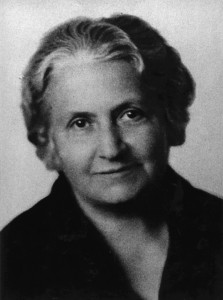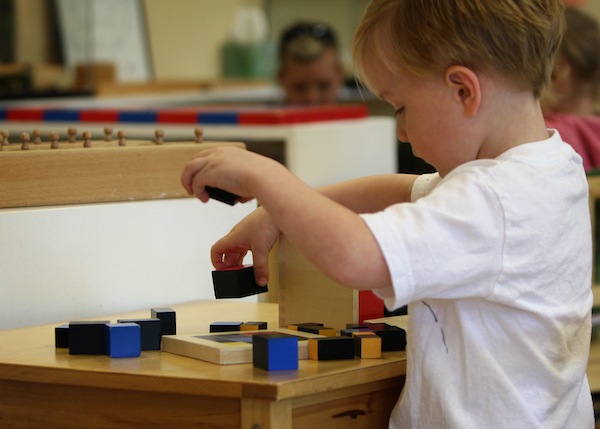 “I have studied the child. I have taken what the child has given me and expressed it and that is what is called the Montessori method.” Maria Montessori
“I have studied the child. I have taken what the child has given me and expressed it and that is what is called the Montessori method.” Maria Montessori
The Montessori approach offers a broad vision of education as an aid to life. It is based on the fundamental belief that a child learns best within a social environment which supports and respects each individual’s unique development. There are endless opportunities for children to expand their knowledge and gain life-long skills during the times they are motivated by spontaneous interest. Dr. Montessori believed that the goal of education should not be to fill the child with facts from a pre-selected curriculum, but rather to cultivate his/her own natural desire to learn. Children who are guided in reaching their full potential at a critical time in their development build a foundation that enables them to grow and become responsible and caring members of society who have the ability to effect change as well as the self-esteem and confidence to pursue their goals.
What happens in a Montessori classroom?
Montessori students learn how to learn. The world of the child is full of sights and sounds, which at first appear chaotic. From this chaos, the child gradually creates order and learns to distinguish among the impressions that assail his senses, slowly, but surely, gaining mastery of himself and his environment. In the Montessori classroom, children enjoy long periods of uninterrupted time and are exposed to a range of intellectual, physical and social activities. Children learn to ask questions, make decisions, and seek challenges. In order to develop his or her physical, intellectual, and spiritual powers to the fullest, children must have freedom to learn in a nonjudgmental community where freedom for the individual is balanced with the needs of the group. As believers in the Montessori method, we recognize the importance of each child’s early experiences in the formation of an emotionally healthy responsible adult.
What is the teacher’s role in a Montessori classroom?
In a Montessori classroom, the adult working with students, the guide, goes beyond the role of a teacher. This highly trained, responsive individual prepares the environment and specific lessons for each child, placing them in direct contact with the materials and content for their learning experience. Each day, he or she also makes sure students receive periods of concentrated, uninterrupted work time to let them pursue their own directions.
